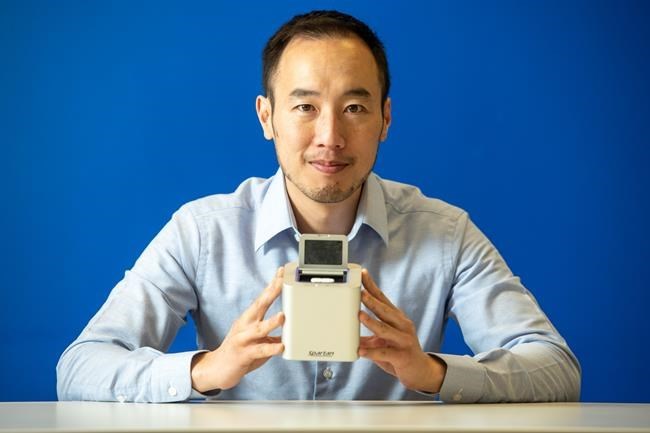TORONTO — Michael Hartley was overseeing the health, safety and environmental risks for a 6,200-person offshore oil project in the Caspian Sea when the Transocean Deepwater Horizon drilling rig exploded, killing 11 workers on board and releasing million litres of oil in the Gulf of Mexico in 2010.
"Our installation manager came to me and said, 'could this eventually happen to us?'" Hartley recalled.
"With the data that we were capturing, I couldn't definitively say no and that's when I realized that we needed to change the way we measure and engage with risk and performance data."
That experience has been in the back of Hartley's mind as COVID-19 has spread around the globe and as his company, Minetell Technologies, has pivoted to help companies monitor their risk of exposure to the virus.
The shift places the Toronto-based company in a growing group of Canadian tech companies that are thinking fast and pushing out new products and services in response to demand for help in the COVID-19 fight.
Some are tackling the immediate need for health-care communication systems, life-saving devices like ventilators and speedy virus testing equipment. Others have zeroed in on bringing efficiencies to the world of e-commerce, deliveries and the supply chain.
Minetell's cloud-based platform assesses the effectiveness of COVID-19 prevention measures such as hand washing, physical distancing, and personal protective equipment in real-time to identify areas where improvement is required.
Decision-makers are alerted of problems immediately, allowing them to quickly enact changes in order to reduce the likelihood of the virus's spread.
For workers, the platform offers peace of mind. For employers, it's helpful with emergency detection.
While the platform was designed mainly for the resource sector, it can be used by a wide variety of corporations outside the industry. Hartley said he already has clients in several sectors lined up in Canada and the U.S. and some are eyeing it in Mexico.
Similarly, 1QBit is seeing excitement around its technology, which brings artificial intelligence to radiology, said president Landon Downs and Deepak Kaura, its chief medical officer.
The Vancouver-based quantum and advanced computing software company has recently created 1QBit xrAI, a chest radiography tool that uses AI to improve the accuracy and timeliness of diagnosing lung abnormalities.
"A chest X-ray is often actioned by the doctor...and they don't have time to wait for a radiologist to read it, so giving that physician at the frontline a tool that improves the confidence level in making an accurate and correct diagnosis of an abnormality on the chest X-ray means that they can better manage that patient," said Kaura, who also works at Alberta Children's Hospital.
"And that's a huge deal, because most of the people who died from COVID, die from pneumonias, which are infections of the lungs."
Following clinical trials, the tool received expedited Health Canada approval to allow its use and the Saskatchewan Health Authority has plans to launch it to help combat COVID-19.
In Ontario, Spartan Bioscience Inc. is also seeing health care authorities leap for help from the Ottawa-based company that has developed a DNA testing cube.
The hand-held analyzer is the size of a coffee cup and can process COVID-19 test results in under an hour, said Paul Lem, Spartan's chief executive.
"This is going to be really good for you, if you can't wait for a hospital lab to process your sample," he said. "You can imagine it at pharmacies, doctors offices, community centres in small towns and remote and northern communities because right now, all those places have to collect (tests) and ship them off to a central lab in a big city like Toronto."
Public Health Ontario and the National Microbiology Lab in Winnipeg have already got their hands on the device and the federal government has a procurement contact for 14,000 per month in the upcoming months.
"The government is trying to move extremely quickly to help fast track getting our device approved, and then also giving us the purchase orders, so we can wrap up our supply chain," said Lem.
"That's important because every day that goes by where we can't ramp up our supply chain. More people are getting sick when they're being tested."
This story by The Canadian Press was first published April 17, 2020.
Tara Deschamps, The Canadian Press



